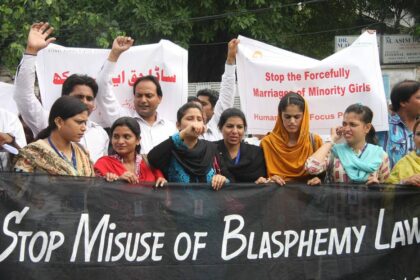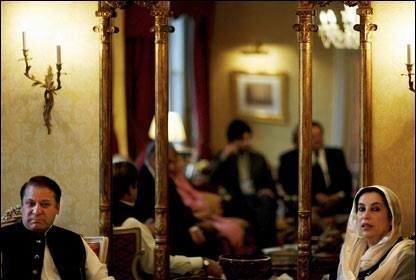As of March 2025, as many as 172,144 Pakistanis have emigrated to over 50 countries, as per the Bureau of Emigration and Overseas Employment (BEOE). All with a goal that has not been accessible for many due to the ever-increasing unemployment rates – a future with good livelihood opportunities. According to the Economic Survey 2023-24, 6.3% of the population translates to approximately 4.51 million unemployed individuals. Moreover, the unemployment rate in Pakistan is forecasted by the Statista to be 8.00% in 2025, making it an even larger concern for young people that hope to achieve their goals and build a future in Pakistan.
Since 2019, the government has highlighted its commitment to create opportunities for the youth and prepare them for an increasingly digital world and economy. This initiative, which has been taken under the Prime Minister’s Youth Programme, aims to improve education and digital literacy as well as increase access to educational opportunities through various internships, scholarships, and financial aid for higher education. The government has also launched a laptop scheme as part of the initiative that distributes about 100,000 laptops to students annually.
Although it looks appealing from the outside, the program falls short of expectations. While its objectives and its initiatives are commendable, the execution has been full of challenges and has not been nearly as effective as it was initially expected to be. Many problems, such as access to the internet—only around 55% of the population has access to the internet, and most of them belong to urban areas—and censorship—whenever there has been any political protest or security operation, websites and different social media platforms are restricted, which disrupts online work and education as well as limits access to information.
It almost feels as if the government is trying to hide the truth about the economy; that it is frail and is on the verge of collapse. Everyone is aware of the loans, which now exceed 50 billion USD, and of the escalating inflation, which has made our economy more vulnerable than ever. Yet, instead of addressing these issues, the government is trying to control the narrative that the demands of the youth have been catered to, and they are empowered, but the closer you get, the clearer it becomes that it is all just an illusion.
The Government of Pakistan has also allocated 1 billion rupees for the establishment of the National Digital Commission (NDC) and the Digital Pakistan Authority (DPA), both of which are expected to lead digital transformation and innovation. However, like many other government departments and programs, it has been accused of mismanagement and exploitation; according to the Daily Times in March 2023, special assistant to the Prime Minister on Youth Affairs, Shaza Fatima Khawaja, was reported to have organized a “fake” prize distribution ceremony. It was staged to favor a political ally and raised concerns about the misuse of youth programs for personal political gains. It is clear that the initiative has many shortcomings, from mismanagement to a lack of practicality, but the more urgent question is whether those who took the opportunity have truly benefited from it.
Platforms like DigiSkills.pk have enrolled over a million learners, but many people have complained about the lack of practical experience and qualified trainers, leaving individuals struggling to find employment or freelance opportunities due to high market competition. Although Pakistan is the third-largest contributor to the global freelance economy, the market has become oversaturated because of increased demand, leading to freelancers earning low incomes, facing job insecurity, and having limited access to opportunities. The initiative has lost its credibility and effectiveness as it has failed to address key issues such as lack of transparency, unequal access, and the absence of policies to support and protect online workers.
In conclusion, all that glitters is not gold. The vision and mission of a ‘Digital Pakistan’ has been nothing but a failed attempt to distract people from the darker, deeper reality—the government is failing the youth of Pakistan. The vision lacks practicality, and the government has actively ignored critical issues surrounding it, which has weakened its foundation. The government needs to make the courses, internships, and all other opportunities more effective and meaningful, while prioritizing the long-term benefit of the youth—not just distributing a few laptops to students.
















